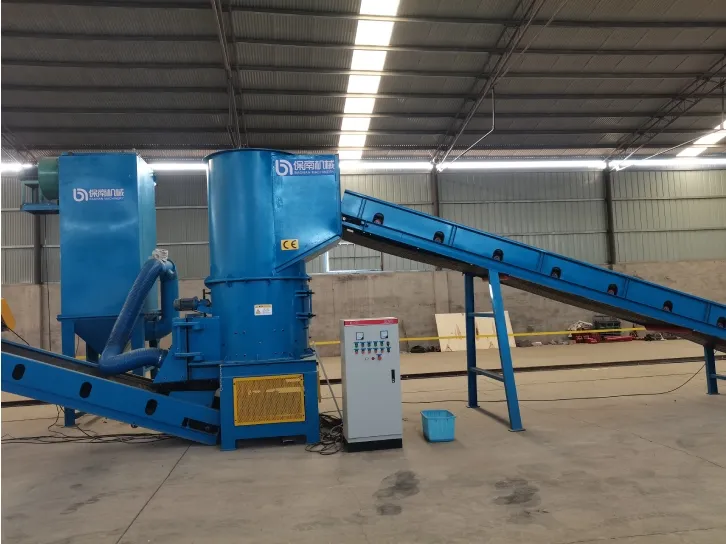

نومبر . 12, 2024 22:09 Back to list
The Role of Metal Turning Shredders in Industrial Recycling
In today's rapidly evolving industrial landscape, the need for efficient waste management systems is more critical than ever. One essential piece of equipment that plays a vital role in this process is the metal turning shredder. This specialized machinery is designed to process metal scrap efficiently, converting it into manageable pieces and facilitating recycling efforts.
Understanding Metal Turnings
Metal turnings refer to the small, curly shavings or chips that are produced during machining processes such as turning, milling, or drilling. These turnings, often made from aluminum, steel, or other alloys, can accumulate quickly, creating significant waste. The challenge lies in managing these byproducts effectively to minimize environmental impact and ensure sustainability.
The Importance of Metal Turning Shredders
Metal turning shredders are engineered specifically to handle these metal waste products. They are equipped with heavy-duty blades capable of shredding the turnings into smaller, more manageable sizes. This process not only reduces the volume of waste but also prepares it for further recycling. By shredding metal turnings, manufacturers can reclaim valuable materials, reducing the need for virgin resources and promoting a circular economy.
Enhanced Efficiency and Cost Savings
Investing in a metal turning shredder can significantly enhance a manufacturing plant's efficiency and reduce disposal costs. Traditionally, scrap metal has been disposed of in landfills, which can be both costly and detrimental to the environment. By shredding metal turnings, companies can reduce the space required for storage and facilitate transportation to recycling facilities.
Moreover, when metal turnings are processed correctly, they can be sold to scrap metal buyers at a competitive price. This not only recuperates some of the costs associated with production but can also turn a waste product into a revenue stream, contributing positively to a company's bottom line.

The Shredding Process
The operation of a metal turning shredder is straightforward, yet highly effective. The machine feeds the metal turnings into a series of rotating blades that shred the material. Depending on the design of the shredder, these blades can be adjustable, allowing for different output sizes. As the turnings are shredded, they can be collected in bins or conveyor systems for easy handling.
Advanced shredders are equipped with features such as magnet separation, which helps to remove non-metallic materials and ensures a purer end-product. Additionally, some models offer automated systems that optimize the shredding process, increasing throughput and reducing manual labor requirements.
Environmental Benefits
One of the most significant advantages of metal turning shredders is their positive impact on the environment. By facilitating the recycling of metal turnings, these machines help reduce the amount of waste sent to landfills, subsequently lowering greenhouse gas emissions associated with waste decomposition.
Furthermore, recycling metal saves energy compared to producing new metal from raw ore. For instance, recycling aluminum can save up to 95% of the energy required to create new aluminum, highlighting the crucial role that shredders play in promoting more sustainable manufacturing practices.
Conclusion
As industries continue to face pressure to adopt more sustainable practices, metal turning shredders emerge as an essential component in the management and recycling of metal waste. Their ability to reduce the volume of scrap metal, enhance efficiency, and promote environmental sustainability makes them indispensable in modern manufacturing.
By choosing to integrate metal turning shredders into their operations, companies can not only improve their waste management processes but also contribute to a more sustainable future. The benefits—ranging from cost savings and efficiency to environmental conservation—underscore the importance of these machines in the industrial recycling landscape. As technology continues to advance, the role of metal turning shredders will undoubtedly become even more significant in the quest for reducing waste and maximizing resource recovery.
Latest news
Troubleshooting Common Eddy Separator Problems
NewsJul.04,2025
The Role of Metal Recycling Plants in Circular Economy
NewsJul.04,2025
The Impact of Recycling Line Pickers on Waste Management Costs
NewsJul.04,2025
Safety Features Every Metal Shredder Should Have
NewsJul.04,2025
How Industrial Shredders Improve Waste Management Systems
NewsJul.04,2025
How Cable Granulators Contribute to Sustainable Recycling
NewsJul.04,2025